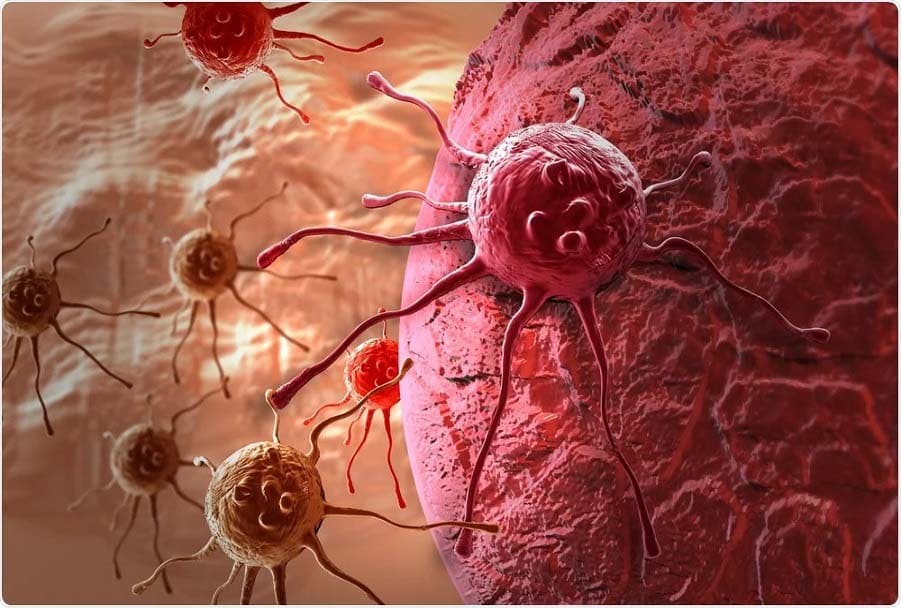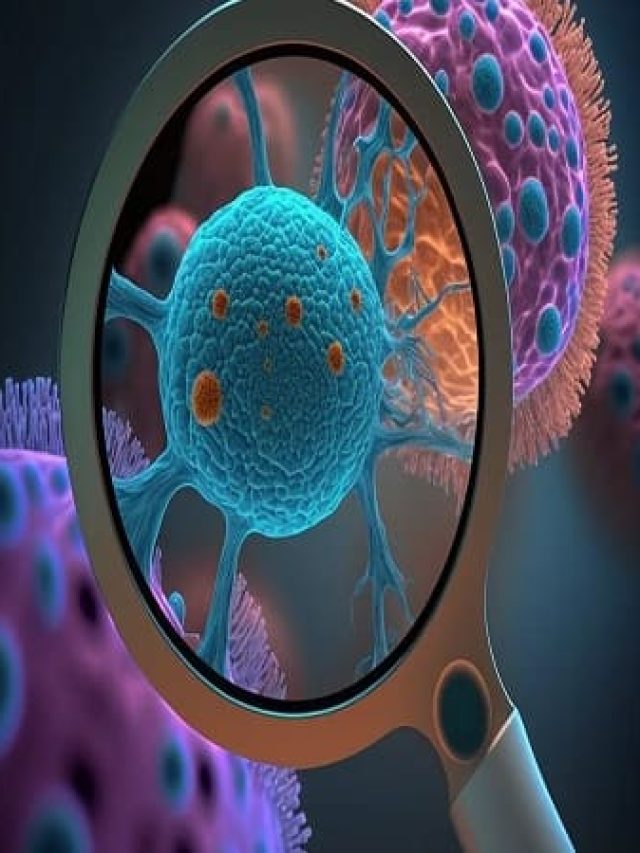Embarking on the journey of cancer awareness is not just a responsibility—it’s a call to action. Did you know that early cancer detection can significantly impact survival rates? In this exploration of often overlooked cancer symptoms, we unveil the importance of recognizing these subtle signals and why they can be easily missed. Let’s debunk common misconceptions and shed light on the reasons behind overlooking these symptoms. Join us on this mission of empowerment through knowledge.
Energizing Your Body, Recognizing Fatigue:
Persistent Fatigue:
Unlock the secret behind persistent fatigue—one that extends beyond your average tiredness. Did you know that unexplained fatigue can be an early indicator of cancer-related exhaustion? Empower yourself; seek medical advice and take charge of your well-being.
Shedding Light on Unseen Changes:
Unexplained Weight Loss:
Weight loss without a clear cause is more than just a number on the scale. Decode the enigma with a healthcare professional, and understand why unintentional weight loss might be signaling underlying cancer activity. Your body speaks; are you listening?
Back Pain: More Than Just a Nudge:
Chronic Back Pain:
Back pain is common, but when it lingers beyond the norm, it might be telling a different story. Explore the depth of persistent back pain with a healthcare provider. Did you know certain types of cancer could be the hidden cause? Ignite the conversation for a thorough evaluation and timely intervention.
Listen to Your Body’s Digestive Symphony:
Changes in Bowel Habits:
Your digestive symphony holds vital clues. Pay attention to changes—persistent constipation, diarrhea, or shifts in stool color might be signaling colorectal cancer. Act on the rhythm of your body; undergo a thorough medical evaluation, including screenings for colorectal cancer.
Keeping Tabs on Your Body’s Waterworks:
Frequent Urination:
Your body’s waterworks should sing a familiar tune. Increased urination, especially with pain or discomfort, might signal health issues, including prostate, bladder, or gynecological cancers. Be vigilant, listen to your body, and seek medical advice if unusual symptoms persist.
Love Your Skin, Know Its Language:
Skin Changes:
Your skin tells a story. Changes in its appearance can be the prologue to various health conditions, including cancer. Love your skin enough to give it regular check-ups and consult a dermatologist for early detection of potential skin cancers.
7. Breath of Fresh Air or a Hidden Warning?
Persistent Cough:
A lingering cough, especially if blood joins the conversation, might be a sign of lung cancer. Did you know timely detection is vital for effective treatment and improved outcomes? Catch the whispers early—seek medical attention and empower yourself with knowledge.
Swallowing Pride, Addressing Difficulties:
Swallowing Difficulties:
Overcoming pride is simpler than grappling with regrets. Challenges in swallowing could be associated with conditions such as esophageal or throat cancers. It is crucial to promptly seek medical attention for timely diagnosis and suitable treatment. Were you aware that early intervention can greatly impact the outcome?
Celebrate Your Uniqueness, But Watch for Changes:
Changes in Breast Tissue:
Your body is unique, but changes in breast size, shape, or texture might signal breast cancer. Celebrate your uniqueness with regular self-examinations. Did you know staying breast-aware is crucial for early detection? Empower yourself and those around you.
Menstrual Health: A Woman’s Monthly Story:
Irregular Menstrual Cycles:
Your menstrual health is a monthly narrative. Changes might be indicative of uterine or ovarian cancer. Monitor your menstrual health, and report any unusual changes to your healthcare provider. Did you know early cancer detection can make a difference in outcomes?
Addressing Intimacy, Speaking Openly:
Pain during Intercourse:
In matters of intimacy, openness is key. Persistent pain during intercourse can be a symptom of gynecological cancers. Open communication with healthcare professionals is essential for addressing concerns related to sexual health. Did you know speaking up is the first step towards early intervention?
From Heartburn to Caution:
Persistent Heartburn:
Heartburn, though common, may lead to a more serious tune called gastroesophageal reflux disease (GERD) and increase the risk of esophageal cancer. Don’t let it play on—seek medical advice for persistent heartburn to address underlying issues. Did you know early caution can prevent a potentially serious melody?
Listen to Your Jaw’s Tale:
Jaw Pain:
Your jaw may be telling a tale of oral cancers. Any unusual or persistent discomfort should be promptly addressed. Regular dental check-ups can harmonize with early cancer detection. Did you know your oral health is a key player in overall well-being?
A Visionary Approach to Health:
Vision Changes:
Changes in vision might be a glimpse into broader health issues, including brain or eye cancers. Don’t turn a blind eye—seek prompt evaluation by an eye care professional for sudden or persistent vision changes. Did you know early attention to vision changes can impact your overall health?
Nodes: Not to Be Ignored:
Swollen Lymph Nodes:
Nodes are like silent guardians. Enlarged and painless lymph nodes can be a sign of an underlying infection or cancer. Don’t ignore them, especially if they persist or are associated with other concerning symptoms. Did you know paying attention to your body’s signals can be a proactive step towards overall health?
Nails: A Mirror to Your Health:
Changes in Nail Beds:
Your nails mirror your health. Discoloration, clubbing, or unusual growth patterns might be indicative of various cancers. If your nails tell a persistent story of change, seek medical evaluation for a comprehensive assessment. Did you know even your nails can be messengers?
Mind the Throb:
Persistent Headaches:
Persistent and severe headaches, especially with other neurological symptoms, might be associated with brain tumors. Don’t ignore the throb—seek prompt medical evaluation. Did you know your body communicates through pain, urging you to pay attention?
Abdominal Symphony:
Abdominal Pain:
Your body’s abdominal symphony, though common, might be playing an unusual tune. Persistent abdominal pain, especially unrelated to digestive issues, could be a symptom of various cancers. Don’t let the pain linger; investigate thoroughly. Did you know your body’s rhythm can reveal hidden stories?
Unmasking the Silent Whispers:
Hoarseness:
Your voice, a unique melody, might face unexpected changes. Chronic hoarseness or voice changes can be linked to cancers affecting the throat or larynx. Don’t silence the whispers—seek medical evaluation for persistent voice changes. Did you know your voice can tell a tale of its own?
Numbness or Tingling:
Numbness or Tingling:
Unexplained numbness or tingling, especially in the extremities, might be a silent tale of nerve compression linked to certain cancers. If your body whispers with persistent or unexplained neurological symptoms, seek prompt medical evaluation for a
comprehensive assessment. Did you know your nerves can be messengers too?
Final Thought
In unveiling these often overlooked cancer symptoms, we empower ourselves with the superpower of early cancer detection and successful treatment. Regular health check-ups, self-examinations, and open conversations with healthcare professionals play a pivotal role in maintaining overall well-being. By attuning ourselves to these subtle signals, we become heroes in our health journey, increasing the chances of early intervention and positive outcomes. Share this knowledge, amplify awareness, and let’s face the whispers together. Your health is your power—wield it wisely.
Explore more on the subtle nuances of your body’s signals in our previous article, ‘Whispers of Discomfort: Navigating the World of Silent Reflux.’ Delve into the interconnected web of health insights as we continue the journey of proactive well-being in our latest guide to early cancer detection


